Winning Negotiations with Software Providers
Winning Negotiations with Software Providers: Stop Losing Money on Renewals
Are you personally accountable for missed cost-saving targets because software providers consistently outplay your negotiation tactics? Software renewals typically impose price hikes of 6-12%, adding unexpected strain on budgets. Without effective strategies and robust negotiation tools, your organisation is likely overpaying—year after year.
The BNA Procurement Negotiation Training, supported by our comprehensive Software Negotiation Playbook, equips procurement professionals with the skills and strategies to confidently secure optimal terms and pricing.
The renewal process for software subscriptions is no longer a routine task; it has evolved into a high-stakes negotiation scenario. Providers frequently leverage renewal periods to maximise profits, often through hidden costs, rigid clauses, and tactical pricing strategies. Here’s how you can take back control, with practical steps and real-world strategies:
1. Market Mastery
Understanding the true market value of software agreements prevents you from falling into vendor-driven pricing traps. Vendors often exploit information asymmetry—when they know market conditions better than you do—to maximise their profits.
Why It’s Important: Knowing the market allows you to confidently challenge pricing proposals and ensures your negotiations start from a position of strength.
Specific Focus:
- Leverage benchmarking tools and market analyses from industry leaders.
- Regularly review competitor pricing data to stay informed.
- Engage market experts to validate vendor proposals and ensure competitiveness.
- Utilise online pricing comparison platforms to gather timely data.
- Set up internal pricing databases to track historical and current market rates.
2. Navigate Vendor Dynamics
Every software provider has its unique internal structures and motivations. Knowing who makes the final decisions and what their goals are is essential for achieving negotiation success.
Why It’s Important: Effective stakeholder management shifts the power dynamic in your favour by addressing the true decision-makers directly.
Specific Focus:
- Conduct stakeholder mapping to identify and influence key vendor decision-makers.
- Build strategic relationships directly with senior vendor executives.
- Tailor your negotiation approach to the specific dynamics of the vendor’s internal structure.
- Monitor vendor performance metrics to leverage during negotiations.
- Regularly update internal records on vendor strategies and negotiation outcomes.
3. Develop a Powerful BATNA
Your Best Alternative to a Negotiated Agreement (BATNA) sets the baseline for acceptable outcomes. Without a strong BATNA, you risk agreeing to suboptimal terms because you see no better alternative.
Why It’s Important: A clear BATNA empowers you to walk away confidently if negotiations become unfavourable, significantly increasing your leverage.
Specific Focus:
- Cultivate ongoing relationships with alternative vendors.
- Plan for short-term contract extensions to maintain flexibility.
- Clearly articulate viable alternatives to strengthen your negotiation position.
- Develop internal scenarios outlining clear and actionable backup plans.
- Regularly reassess market alternatives to keep your BATNA relevant.
4. Control Hidden Costs
Software vendors often embed unexpected fees within contracts, which can significantly escalate your expenses beyond initial projections.
Why It’s Important: Proactively managing hidden costs safeguards your budget and maintains financial predictability.
Specific Focus:
- Demand transparency and detailed breakdowns of all proposed fees.
- Negotiate to remove or cap unexpected charges explicitly.
- Clearly define and control auto-renewal conditions within contracts.
- Schedule regular contract reviews to spot hidden charges proactively.
- Engage legal support to scrutinise contractual fine print thoroughly.
5. Optimise Renewal Terms
Rigid renewal clauses often limit your ability to adapt to changing business requirements, trapping you into unfavourable conditions.
Why It’s Important: Flexible renewal terms ensure contractual agreements continue to align with evolving business objectives, reducing operational and financial risks.
Specific Focus:
- Embed opt-out clauses to maintain flexibility.
- Require advance renewal notices (e.g., minimum 90-day periods).
- Include performance-based terms allowing for early termination without penalty.
- Establish clear metrics to evaluate contract performance regularly.
- Negotiate shorter-term contracts to maintain adaptability to business changes.
6. Anchor Pricing Effectively
Allowing vendors to set the initial price often results in inflated costs and unfavourable terms. Leading with a researched, fair initial offer helps frame negotiations in your favour.
Why It’s Important: Strategic price anchoring enables you to set expectations, influence the negotiation direction, and protect your budget.
Specific Focus:
- Take the initiative to anchor negotiations with an informed initial proposal.
- Justify your position with robust data and clear documentation.
- Emphasise your organisation’s strategic value to the vendor to enhance your negotiation position.
- Use recent successful deals as benchmarks in negotiations.
- Communicate the potential long-term value of partnership clearly and consistently.
Ready to Master Your Next Software Negotiation?
Transform your software renewals into strategic wins with BNA Procurement Negotiation Training and the exclusive Software Negotiation Playbook. DM me today to access tools and training proven to deliver measurable savings and strategic advantage.
#Procurement #NegotiationTraining #SoftwareNegotiations #CostSavings #VendorManagement #BusinessStrategy #NegotiationExcellence
Recent Posts
How to Use the Decoy Effect in Procurement Negotiation
In procurement, smart framing beats force. This article breaks down how to use the Decoy Effect—a behavioural science tactic—to guide suppliers toward your...
How to Negotiate in India: A Strategic Guide for Business Success
India is a land of immense opportunity—and complexity. To succeed in business negotiations here, foreign professionals must understand the nuances of hierarchy, relationship-building,...
The Contrast Principle in Procurement Negotiation
In high-stakes procurement, perception is leverage. This article explores how elite buyers use the contrast principle to frame negotiations, control supplier expectations, and...


